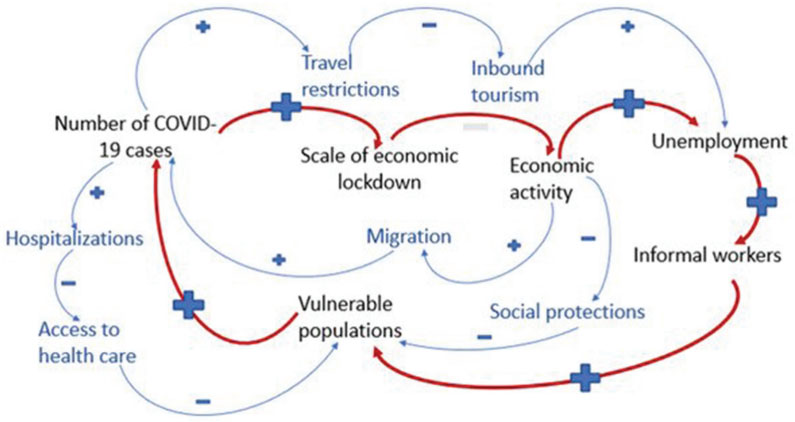Promote Sustained, Inclusive and Sustainable Economic Growth, Full and Productive Employment and Decent Work for All
Gavin Hilson
The international development community no longer has the luxury of being able to ignore the ASM sector. But with the SDGs and the MDGs before them having been designed without recognizing ASM’s importance, it has proved difficult to build a case for supporting the sector’s operators. The former, however, are fairly flexible: if packaged in development terms, strategies which seek to improve the sector and give it the visibility it deserves could gain some traction.
In the case of SDG 8, the starting point is formalization, which, if successful, provides a platform for identifying and addressing more comprehensively the needs of different operators. In recognition of the eclectic collection of activities found in ASM and the need to avoid repeating the mistakes of the past by devising yet another inappropriate framework or set of standards, the chapter highlights three priority areas for governments: (the management of) mercury, work practices and support. Improvements made in these three areas of the sector would go a long way toward addressing the targets set under SDG 8. The strategies pursued to do so, however, will ultimately vary, depending on the setting.
Transformational entrepreneurship and its effect on readiness for change, psychological capital, and employee performance: evidence from an Indonesian bank
Published in F1000Research 2021, 10:887
Michael Gunawan, Retno Wijayanti, Febri Nila Chrisanty, Budi W. Soetjipto, Ani Wahyu Rachmawati, Santi Rahmawati
Continuing failures of financial capitalism across borders have led corporation to develop a more balanced economic growth model of transformational entrepreneurship that emphasises both short-term economic and longer-term social impacts. The model encourages entrepreneurial activities that bring major changes in the related markets and industries, as well as changes in society and culture. At the corporate level, transformational entrepreneurship prepares employees for any potential changes induced by a dynamic environment; it also improves the psychological capital of individual employees, and effective transformational entrepreneurship can eventually accelerate performance. The purpose of this study is to investigate (1) the direct and indirect effects of transformational entrepreneurship on readiness for change, psychological capital and employee performance, and (2) how the effects to readiness for change and psychological capital influence employee performance. The study data were collected using questionnaires completed by employees in 257 branches of a state-owned bank with locations throughout Indonesia. The data were analysed using the structural equation model.
Quantifying the Value of Introducing an Oral Drug Delivery Option for Edaravone: A Review of Analyses Evaluating the Economic Impact of Oral versus Intravenous Formulations
Published in ClinicoEconomics and Outcomes Research
Drug formulation and route of administration can have an impact on not only patients’ quality of life and disease outcomes but also costs of care. It is essential for decision makers to use appropriate economic modeling methods to guide drug coverage policies and to support patients’ decision-making. To illustrate key cost considerations for decision makers in economic evaluation of innovative oral formulations as alternatives to intravenous medication. A structured literature review was conducted using the PubMed database to examine methods used for quantifying the economic impact of introducing a new oral pharmaceutical formulation as an alternative to intravenous medication. To illustrate the methods described in this review, a cost-minimization analysis was conducted to quantify the impact of introducing an oral formulation of a medication originally developed as an intravenous treatment for amyotrophic lateral sclerosis.
Economic growth, full employment and decent work: the means and ends in SDG 8
Published in The International Journal of Human Rights
This article examines SDG 8 ‘Promote sustained, inclusive and sustainable economic growth, full and productive employment and decent work for all’. It critically examines the goal from two perspectives, the business approach advocated by the International Organisation of Employers (IOE) and the human right to full employment and decent work advocated by the International Trade Union Confederation (ITUC) and human rights NGOs. While full employment and decent work are indeed prominent in SDG 8, the 2030 Agenda embraces market-centred institutional arrangements that may present obstacles to achieving the goal. Specifically, grafting the human rights to full employment and decent work onto a business-oriented economic growth agenda in SDG 8 calls into question whether the 2030 Agenda enshrines full employment and decent work as human rights obligations of states or merely as benefits of economic growth. The article concludes that the ambiguity in SDG 8 presents both opportunities for human rights monitoring and accountability but also enhanced legitimacy for the business approach.
 China
China  Africa
Africa 

